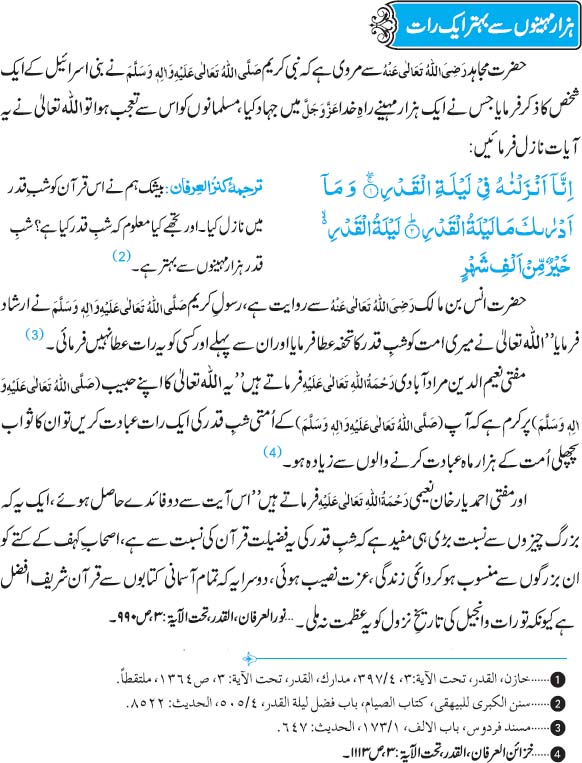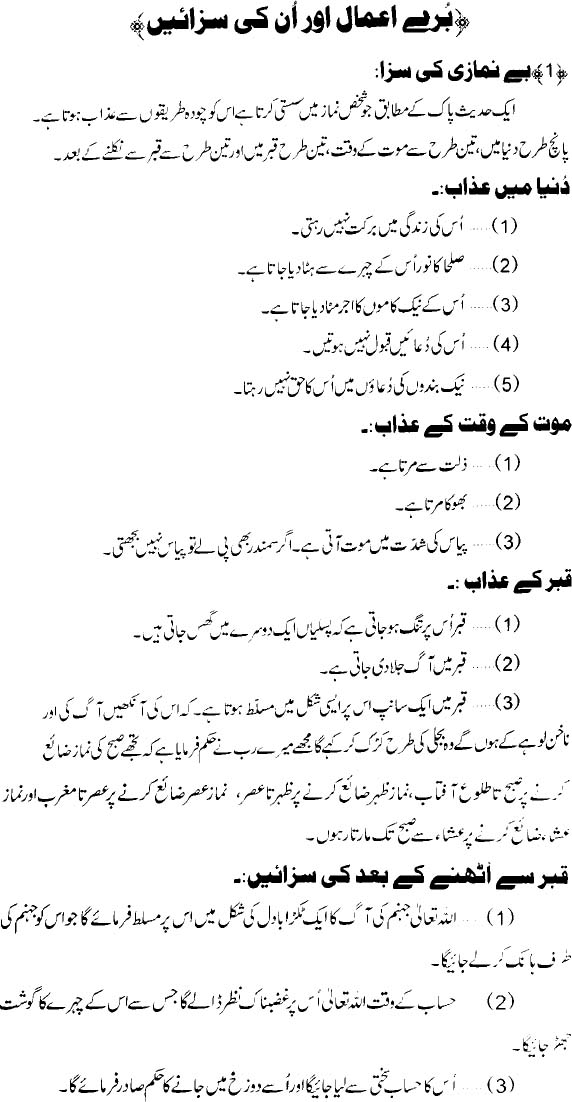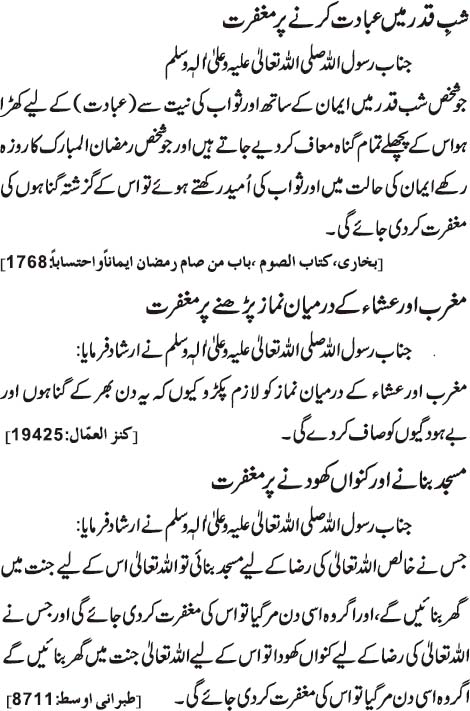
Ramadan: Iftar Kay Waqt Jahannam Say Khalasi
The Granter And Acceptor Of Repentance
Abu Hurairah (May Allah be pleased with him) reported: I heard the Messenger of Allah (PBUH) saying: “On the Day of Resurrection, my followers (or Ummah) will be summoned Al-Ghurr Al-Muhajjalun from the traces of Wudu. Whoever can increase the area of his radiance should do so.”[Al-Bukhari and Muslim].
Commentary:
The word “Ghurr” is the plural of “Agharr” which means shining or white. It is used for animals (like a horse), i.e., a white mark on its face. Here, it refers to that radiance which will issue from the brows of the believers on the Day of Resurrection and which will make them prominent. Muhajjalun is from Tahjil, which also means whiteness, but it refers to the whiteness found on all four legs, or at least on three legs, of a horse. Here, it refers to that light which will shine through the hands and feet of the believers because of their habit of performing Wudu. This means that the believers among the Muslims will be distinguished from other communities by virtue of the refulgence issuing from their faces, hands, and feet on the Day of Resurrection in the same way that a horse with a white forehead is easily distinguished from other horses.
185/1024 – Riyad Us-Saliheen (Gardens of the Righteous)
At-Tawab (The Granter and Acceptor of Repentance)
By Dr. Muhammad Ratib An-Nabulsi
[He turns to His slaves and accepts their repentance, no matter how grievous or numerous their sins might be]
God’s name “At-Tawab” (The Granter and Acceptor of Repentance) is wholly an issue of His divine mercy: the issue that God (The Granter and Acceptor of Repentance) can deal with His slaves in accordance with His holy justice, and, thus, they would deserve Hell-Fire.
Sehri Khane Mein Barkat

7 Things Your Muslim Husband Wont Tell You
Prohibition of Listening to Backbiting
Abu-Darda (May Allah be pleased with him) said: The Prophet (Sallallahu alaihi wasallam) said, “He who defends the honor of his (Muslim) brother, Allah will secure his face against the Fire on the Day of Resurrection.”[At-Tirmidhi].
Commentary: If someone says something disgraceful against a Muslim, one must defend their Muslim brother (or sister, for that matter) and say that what has been stated about him or her is wrong and that he (or she) is free from the accusation made against him (or her). 255/1528 – Riyad Us-Saliheen (Gardens of the Righteous)
7 Things Your Muslim Husband Won’t Tell You
1. Above all, He Desires Your Respect. In Islam, men are taught from a young age that they are supposed to be the breadwinners and caretakers of their families.
You can imagine how frustrating it would be for a man who tries his best to care for his family to be married to a woman who may not respect him. She may declare that she loves him, but without her respect, he will quickly fall out of love with her.
- March, 2
- 63
- Human Rights
- More
Hazar Maheeno Say Behtar Raat

Hazar Maheeno Say Behtar Raat
The Prophet (Peace Be Upon Him) And The Status Of Women
The Prophet (peace be upon him) gave women rights that Western women did not enjoy until centuries later, like the right to own property independently of her husband
Recently, we have witnessed instances of the horrific treatment of women around the world.
In the time of Prophet Muhammad (peace be upon him), similar cruel practices were enacted by his society, and he opposed all such forms of oppressing women.
Indeed, at the sight of a tragedy of any human being, Prophet Muhammad’s (peace be upon him) heart would be saddened, and his eyes would flow with tears.
One of the most spectacular examples of this is the following story, which concerns the practice of shunning daughters.
Prophet Muhammad (peace be upon him) was born in a society where women had been subjected to much violence, which often took the form of female infanticide. Daughters were considered a burden, and getting rid of them was sometimes considered a necessity, which they did most violently: by burying them alive!
Prophet Muhammad (peace be upon him) was very kind and polite toward women. At a time when they were treated very badly, the Prophet (peace be upon him) gave women honor and dignity equal to men.
- February, 28
- 65
- Prophet Character
- More
Buray Aamaal Aur Unn Ki Sazaien

Buray Aamaal Aur Unn Ki Sazaien
Humbleness: importance And Significance
Humbleness is to know the value of oneself, to avoid pride, or disregard the truth, and to underestimate people. As the Prophet sallallahu alaihi wa sallam (may the peace and blessings of Allah be upon him) said, according to Muslim and others, “Al-Kibr (pride) is rejecting the truth and looking down upon people” [Muslim, Tirmidhi, and Abu Dawud].
Humbleness is for one who is significant and fears gaining notoriety or becoming too great among people. As it was said, “Humble yourself, you will be as a glimmering star to the viewer on the surface of the water, even if it is lofty.” We don’t say to an ordinary person, “Humble yourself.” But it is said to him, “Know the value of yourself, and do not place it in the wrong place!”
It was narrated by al-Khattabi in al-Uzlah that Imaam Abdullah bin al-Mubaarak came to Khuraassaan [in Persia] and went to a person who was known for his zuhd and wara’ [asceticism and cautiousness in piety], so when he entered where the man was, he (the man) did not turn around nor give him any consideration at all.
Maghfirat Wale Aamaal

Maghfirat Wale Aamaal
How To Clear All The Confusion
Alhamdulillaah, nowadays there’s access to Islamic knowledge like never before. All it takes is a click of the mouse or a simple phone call, and one can gain access to a variety of articles, e-books, and fatwas from the shuyookh. One can also watch videos and listen to lectures from all over the world, simply by sitting at home. And as for the emails, we see plenty of those filling our inbox, from people you know and even people you don’t know, educating us on our Deen. But then, along with all of that, also comes a lot of confusion.
Confusion???
Yes…. Confusion.
That’s because everyone is talking about their version of Islam, their comprehension of how everything should be. Every group is interpreting the texts of the Quran and Sunnah according to its own understanding. One group promotes a certain belief, saying how good it is, while another group considers the very same belief to be totally wrong.

